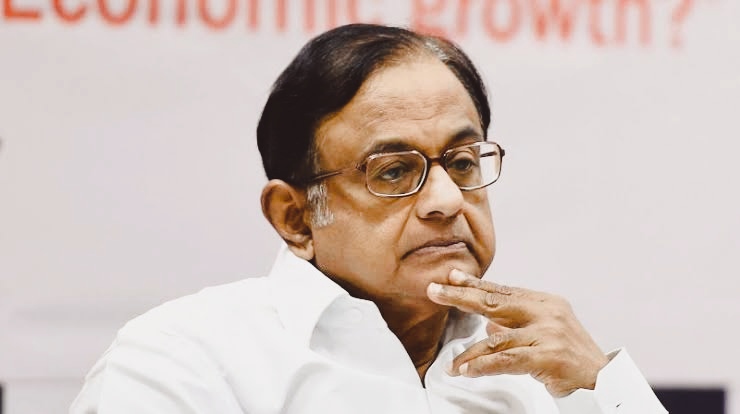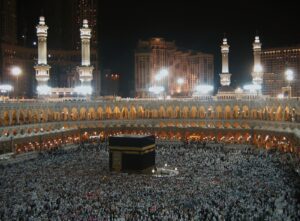Spanish soccer was rocked last month when it became public that Barcelona has paid millions of euros to possibly benefit from refereeing decisions for more than a decade.
Barcelona was paying a company that belonged to the vice president of the country’s refereeing committee.
The club has denied wrongdoing but is being widely criticized across Spain, and prosecutors on Friday formally accused the club of corruption.
Here’s a look at the latest scandal involving Barcelona, which surfaced as the club is still trying to recover from one of its worse financial crises and the departure of Lionel Messi.
WHAT HAPPENED?
Prosecutors say Barcelona paid as much as 7.3 million euros ($7.7 million) from 2001-18 to the company of committee vice president José María Enríquez Negreira in amounts “not justified because they were not foreseen in the statutes of the club nor approved by its general assembly (of club members).”
The payments were allegedly made in exchange for technical reports on referees and youth players, though apparently in amounts above market prices.
Getting reports on referees is common practice and clubs can pay other companies or have them prepared internally, as Barcelona now does. But giving large amounts of money to the company of a person involved in the running of Spain’s referees for the reports is not a normal practice.
The payments were probed as part of a tax investigation into the company of Enríquez Negreira, a former referee who was on the Spanish Football Federation refereeing committee from 1994-2018, when the payments stopped. The committee is in charge, among other things, of choosing referees for each match.
There is so far no evidence that referees or game results were actually influenced during the period in which Barcelona made the payments.
FORMAL ACCUSATION
Prosecutors accused Barcelona of alleged corruption in sports, fraudulent management, and falsification of mercantile documentation.
The accusations are against Barcelona itself, Enríquez Negreira, former Barcelona presidents Sandro Rosell and Josep Maria Bartomeu, and former Barcelona executives Óscar Grau and Albert Soler.
Prosecutors said there was enough evidence to believe that Rosell and Bartomeu, who ran Barcelona in consecutive terms from 2010-20, “reached a confidential, verbal agreement” with Enríquez Negreira, who, “in exchange for money, was to carry out acts tending to favor Barcelona Football Club in the decision-making process of referees in the games played by Barcelona, and in the results of the competitions.”
Barcelona paid Enríquez Negreira’s company during different club presidents, including from 2003-10 under the first term of current president Joan Laporta, who again took charge in 2021. Laporta, however, is not being accused by the prosecutors and has denied any wrongdoing. WHAT BARCELONA SAYS
The club has denied wrongdoing or conflict of interest. It has acknowledged the regular payments to Enríquez Negreira’s company but said they were for only technical reports, not to try to influence refereeing decisions.
Barcelona has yet to fully explain its relationship with Enríquez Negreira. The club said it hired an independent firm to carry out its own investigation and is expected to give a more detailed account of what happened when that is concluded.
President Laporta said, “Barça is innocent of the accusations made against it and is the victim of a campaign, that now involves everyone, to harm its honorability.”
Enríquez Negreira told Cadena SER radio he never favored Barcelona while assigning referees to matches, and his job was to only aid the club verbally about how players should conduct themselves before each referee.
Bartomeu also denied wrongdoing and told ABC newspaper Enríquez Negreira had “zero power over referees.”
Barcelona coach Xavi said the matter was not affecting his players. The team was eliminated from the Europa League but remained in the semifinals of the Copa del Rey and in the lead of the Spanish league.
THE ACCUSERS
The Spanish league, the country’s soccer federation and most clubs expressed their concern and intent to take action against Barcelona. They said the matter was damaging the reputation of Spanish soccer and sports in general.
Spanish league president Javier Tebas said Laporta should resign if he can’t properly explain the payments.
“I think this is the worst moment in Spanish soccer,” Tebas told Movistar on Monday. “It’s embarrassing that we still don’t have a convincing explanation by Barcelona.”
Madrid called for an urgent board meeting on Sunday and expressed its “utmost concern regarding the gravity of the facts” involving Barcelona. It said it would side against the rival in the legal proceeding to defend its “legitimate rights” as an “affected party” in the matter.
The Spanish government’s top sports authority also said it planned to take action. José Manuel Franco, president of Spain’s sports council, said on Monday on channel Telecinco, the government will join the other accusing parties in the legal proceedings. Spanish Prime Minister Pedro Sánchez weighed in on the case, saying the government was waiting for the matter to be clarified.
The Spanish federation noted that Enríquez Negreira left the committee after the new administration took over in 2018.
Spain’s referees came out to publicly distance themselves from the relationship between Barcelona and Enríquez Negreira. Many former referees who were active at the time Enríquez Negreira was their vice president said they never received any pressure from him or other officials.
WHAT’S NEXT?
An investigating judge will decide whether the accusations filed by the prosecutors should lead to charges.
Sporting sanctions against Barcelona were not considered initially because the statute of limitations on the possible irregularities had expired, but if the club is eventually convicted, it could possibly lead to a ban from competitions.
There was no immediate timetable on the next steps by the courts.
Credit : Associated Press (AP)





